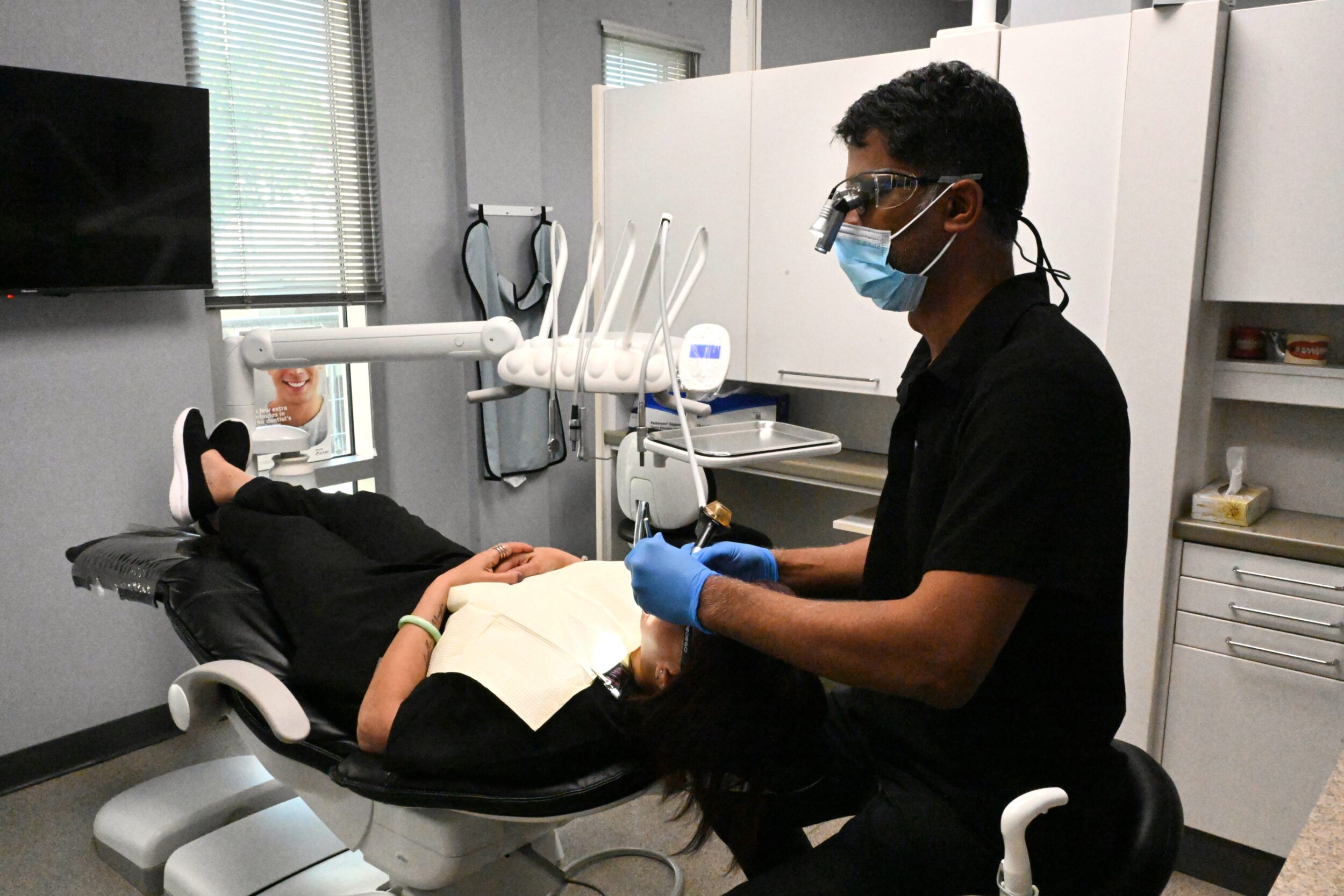Dentures Partial Dentures in Calgary, AB
A denture is a removable dental appliance designed to replace missing teeth and surrounding tissue. It is important to note that they are made to closely resemble your natural teeth and can even enhance your smile a little.
There are two types of dentures – complete dentures and partial dentures. When all the teeth are missing, complete dentures are used, while partial dentures are used when some natural teeth remain. In addition to filling in the spaces left by missing teeth, a partial denture also prevents the other teeth from shifting as a result of the absence of teeth.

Depending on the type of complete denture, it may either be a conventional denture or an immediate denture. Conventional dentures are made once the teeth have been removed and the gum tissue has healed, which usually takes about four to six weeks. The patient will be without teeth during this period. Following the removal of teeth, immediate dentures are made in advance and immediately placed, preventing the patient from being without teeth during the healing process. It will be necessary to make adjustments once the tissues have shrunk and healed.
Despite the fact that dentures are very durable appliances, they may need to be remade, repaired, or repositioned over time due to normal wear and tear.
Reasons for dentures:
- Complete Denture – Loss of all teeth in an arch.
- Partial Denture – Loss of several teeth in an arch.
- Enhancing smiles and facial tissues.
- Increasing chewing, speech, and digestion efficiency.
What does getting dentures involve?
There are several appointments involved in the process of getting dentures, which usually take place over a period of several weeks. A highly accurate impression (mold) is taken and the measurements are used in order to create your custom denture using these impressions. Several “try-in” appointments may be necessary in order to ensure that the shape, color, and fit are as desired. Your dentist will adjust and place your completed denture precisely during the final appointment, ensuring that it fits comfortably and naturally.
You may experience increased salivation, some soreness, and difficulty speaking and chewing at first, but this will subside once your muscles and tissues become accustomed to the new dentures.
Your new dentures will be provided with care instructions. The proper care of your new dentures, good oral hygiene, and regular dental visits will help in extending the life of your new dentures.